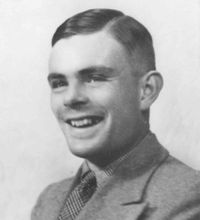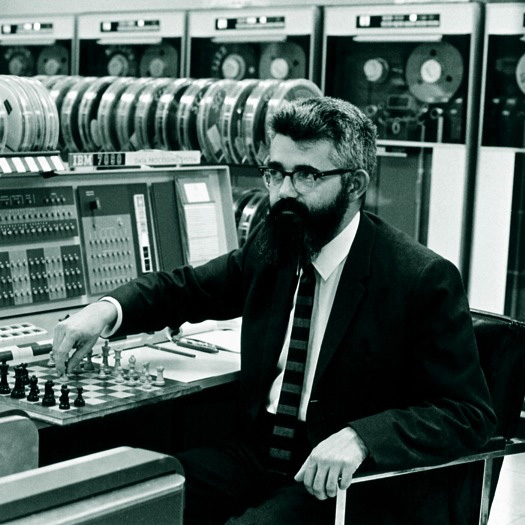People
Alan Turing (1912-1954): Known as the father of modern computer science, Turing was both a mathematician and a logician, defining the concept of an algorithm (a sequence of steps carried out in order to achieve a goal) and inventing a test for artificial intelligence. During the war, he worked at Bletchley Park as a cryptographer, inventing a machine called the 'Bombe' which was used to crack codes encrypted using the Enigma machine. |
 |
 |
Aristotle ( 384-322 BCE): Aristotle was a great Ancient Greek philosopher who wrote many books on subjects from Poetry to Logic. He invented Aristotelian Logic (later replaced by mathematical logic) comprising six volumes of books, together referred to as the Organon. Aristotle also came up with the ideas behind Modal Logic. |
Carl Hewitt (?):
Carl Hewitt was the designer of the first logic-programming language 'Planner'. Unlike McCarthy, Hewitt took a procedural approach to logic-programming, using high-level procedural plans in the language.
Jacques Herbrand (1908-1931):
Herbrand was a French mathematician who specialised in logic and class field theory.
John Alan Robinson (1930- ):
After publishing an article entitled “A Machine-Oriented Logic Based on the Resolution Principle” in 1965, Alan Robinson paved the way for automated deduction systems, and later the logic-programming language Prolog.
John McCarthy (1927-?):
John McCarthy is a prominent computer scientist who first suggested combining programming and logic. McCarthy was a firm believer in declarative programming using pure mathematical logic. He invented the LISP programming language and set up the AI laboratory at Stanford university. His work on artificial intelligence earned him a Turing Award in 1971.

John McCarthy